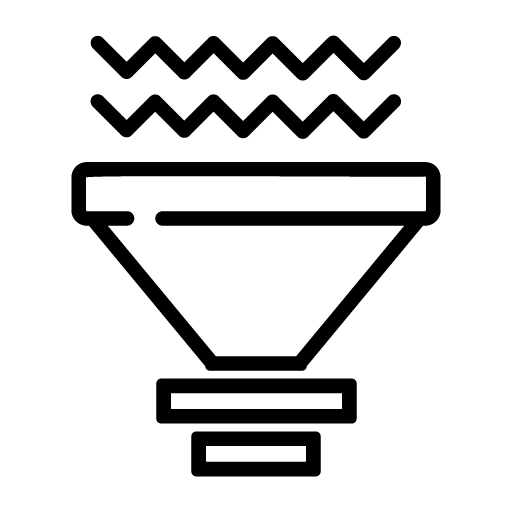Rooibos Production and Processing
Rooibos Production
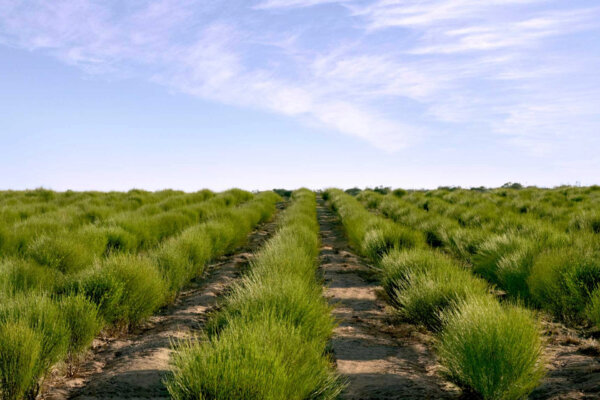
1. Growing
Rooibos seeds are sown between February and March, and the seedlings are transplanted a few months later. After transplanting, the young rooibos plants are allowed to grow for roughly 18 months before their first harvesting.
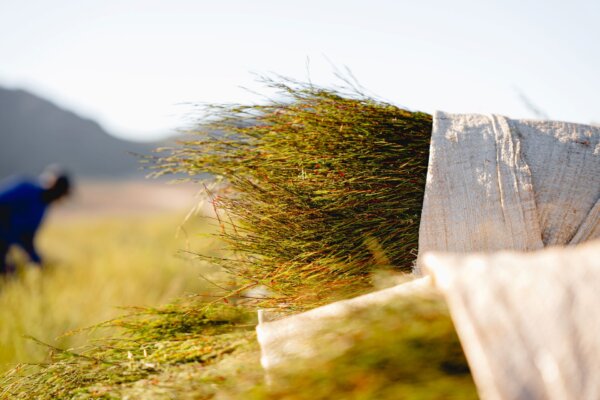
2. Harvesting
The rooibos crop is harvested once a year during summer and early autumn (between January - April) by cutting branches 50 cm above the ground. Branches are cut and bound into sheaves and transported to the drying yard.
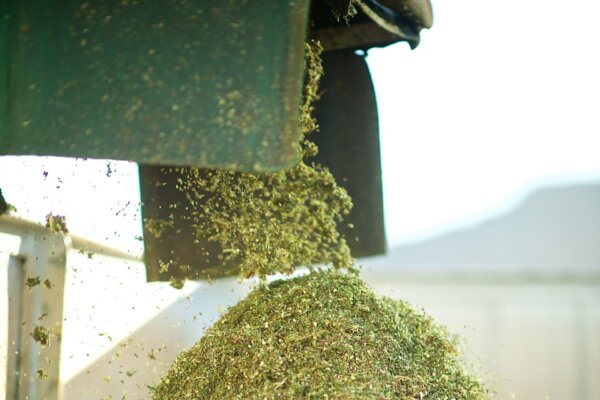
3. Cutting
Sheaves are machine-cut to uniform lengths of between 1.5mm and 5mm. Cuttings are then bruised to facilitate the natural plant phenolic activities which develop the characteristic colour and flavour of rooibos.
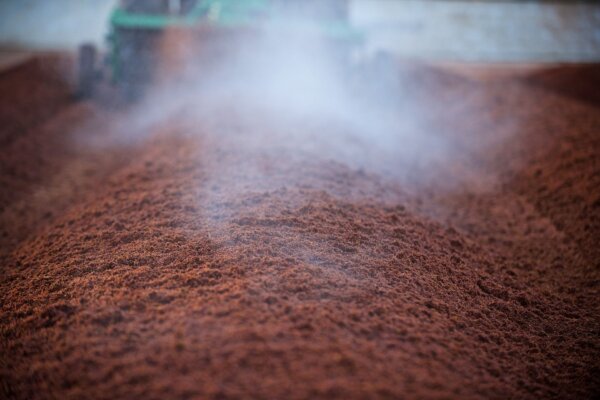
4. Fermentation
After watering and airing, cut and bruised green rooibos is laid out in heaps for 10-14 hours, allowing natural enzymes to oxidize and ferment the plant, giving it its deep amber colour and distinctive aroma.
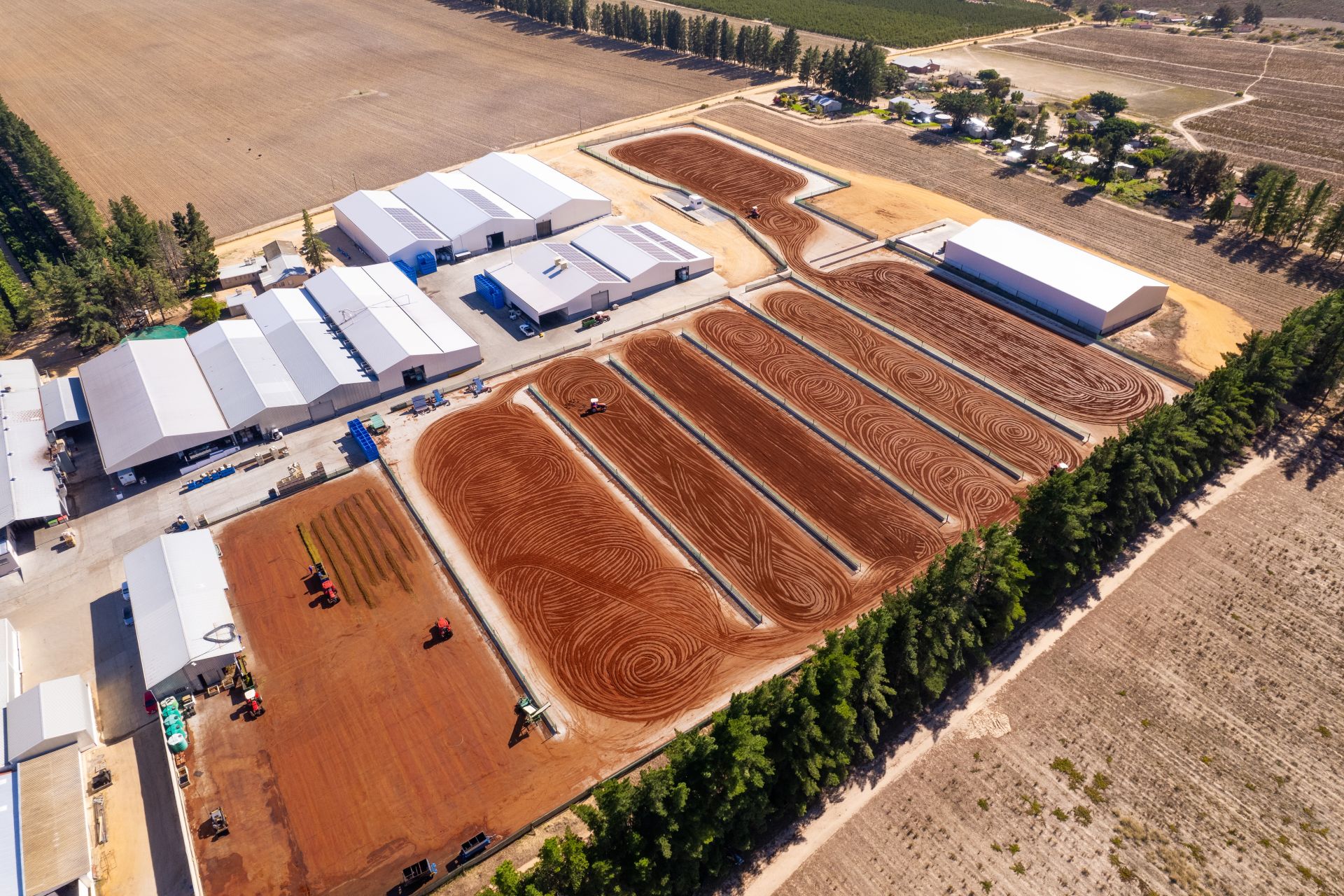
5. Drying
Once fermentation is complete, rooibos is dried in the sun, sorted, and graded by length, colour, flavour, aroma, and density. The dried leaves are packed in bulk bags, labelled, and stored before further processing.
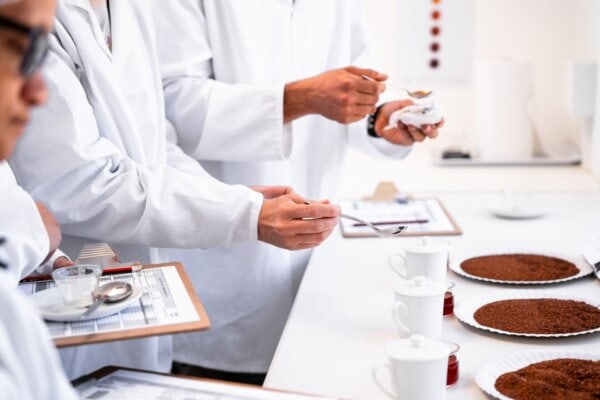
6. Grading
A trained grading team inspects and evaluates the rooibos, taking note of the cut size, leaf length, leaf colour, extract appearance, extract aroma, and extract flavour.
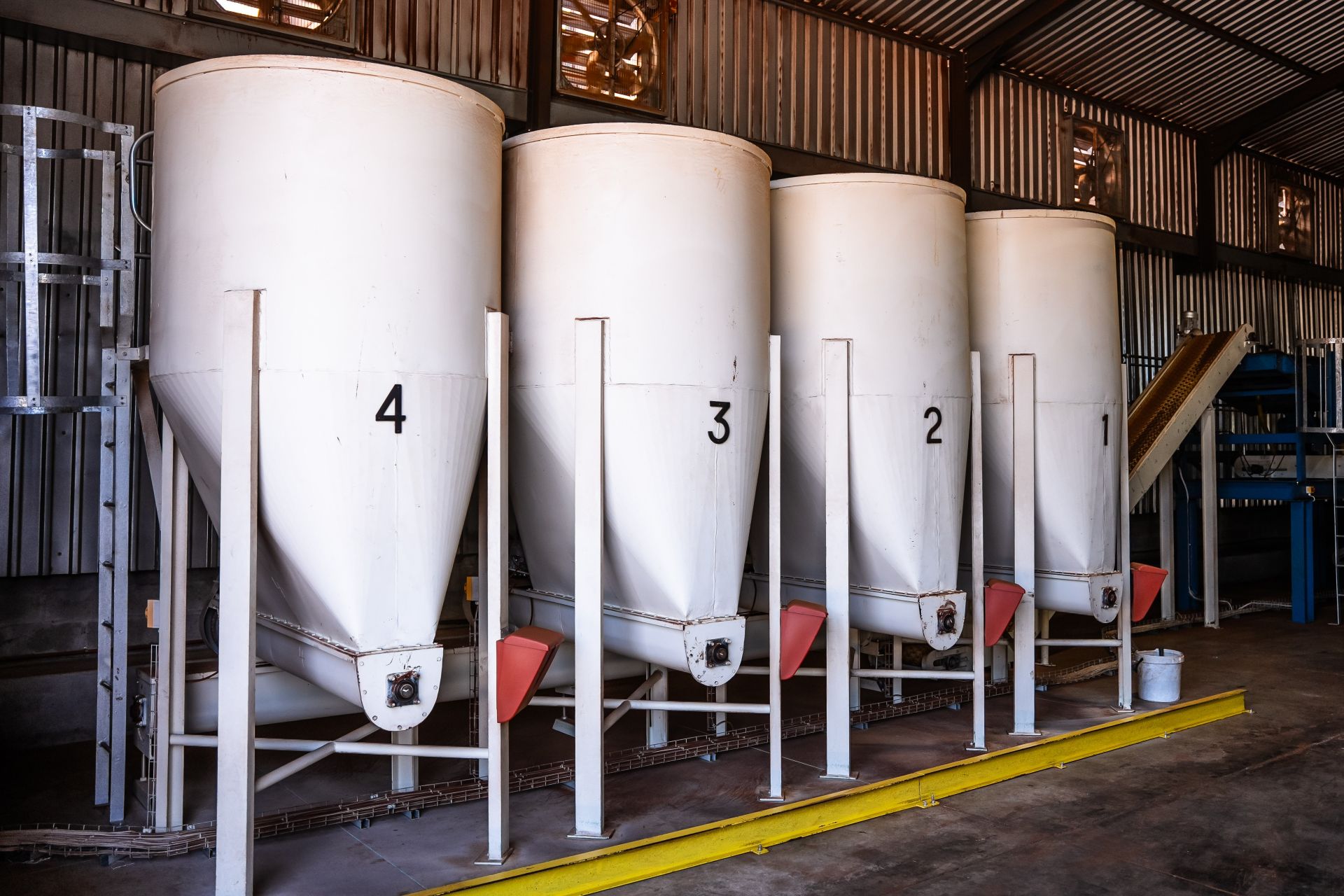
7. Blending
The raw material is blended according to strict guidelines to meet customer requirements in silos equipped with augers that guarantee consistency in cut size and quality throughout the batch.
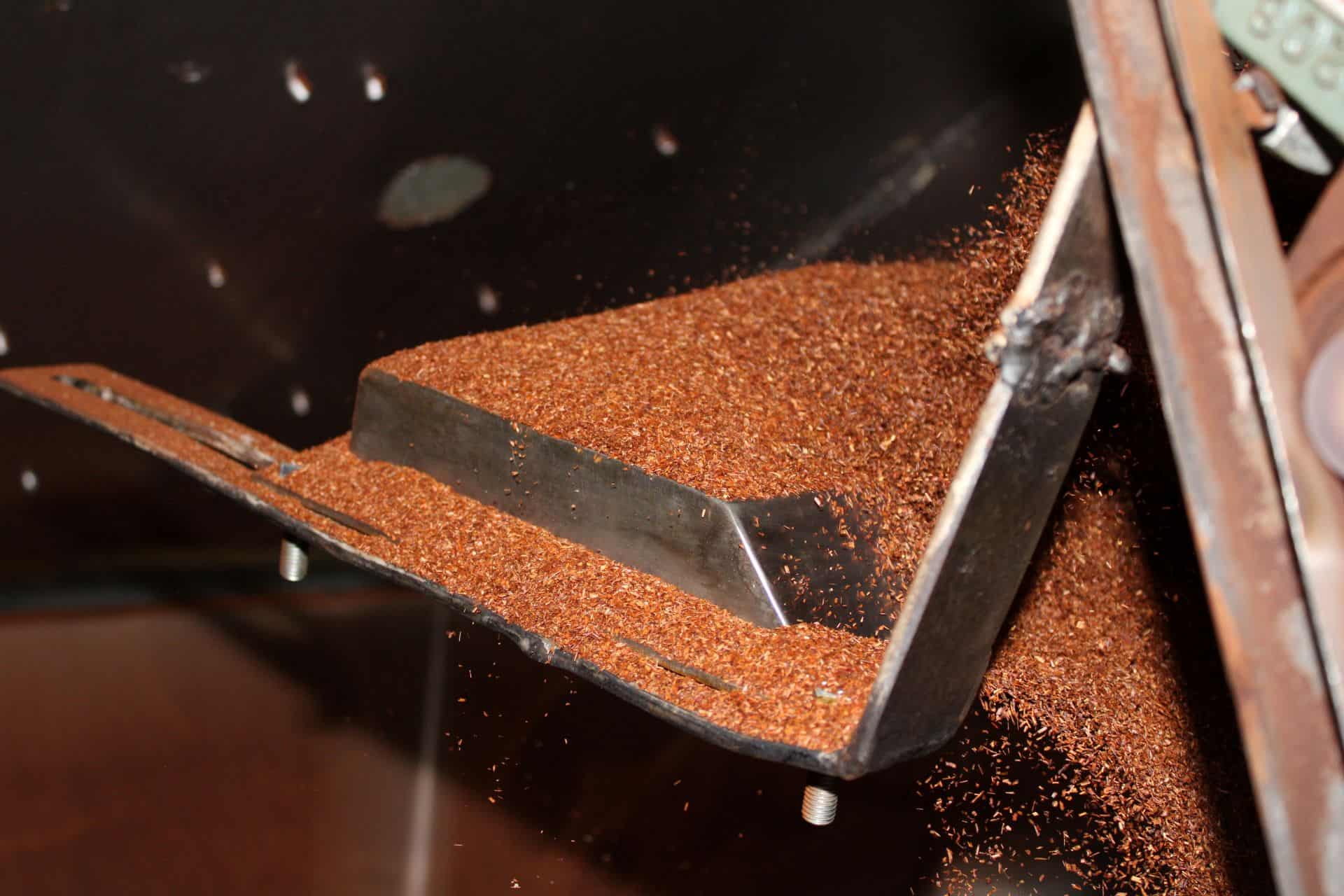
8. Quality Control
Foreign material contamination may occur during harvesting and processing. We pride ourselves on several control steps that we have introduced to eliminate foreign materials. 20 Tons of rooibos can be sieved daily in our factory.
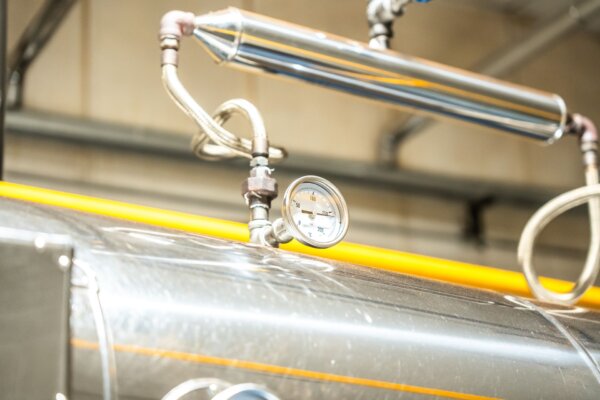
9. Pasteurisation
Rooibos is exposed to steam with a temperature of 160°C for 90 seconds. After pasteurisation, the rooibos is dried with hot air to ensure moisture content is below 10%.
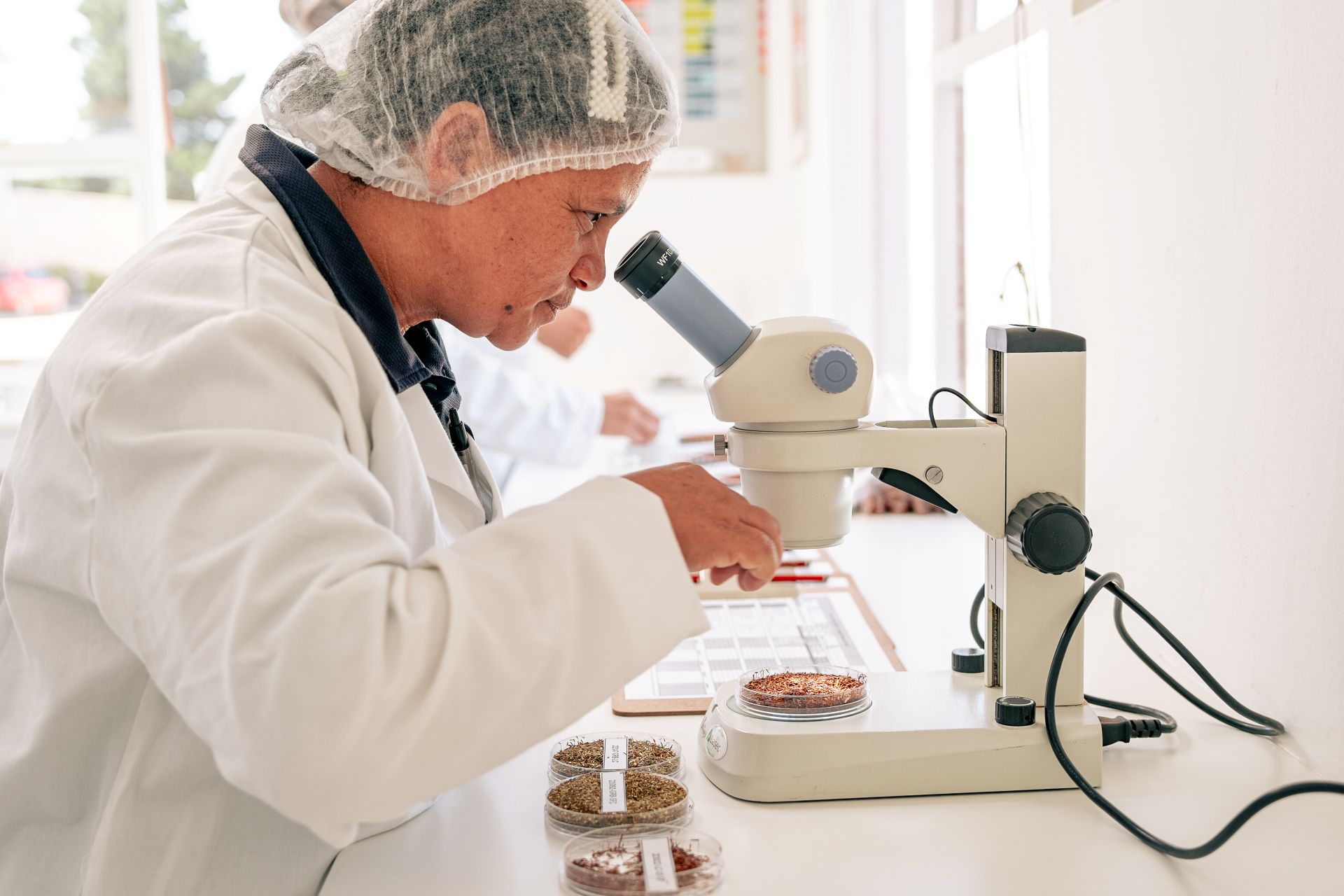
10. Lab Analysis
Analytical tests are conducted at our in-house laboratory and ISO 17025:2017-accredited external labs. Finished batches undergo pesticide residue screening and microbial analysis to ensure top quality and safety.
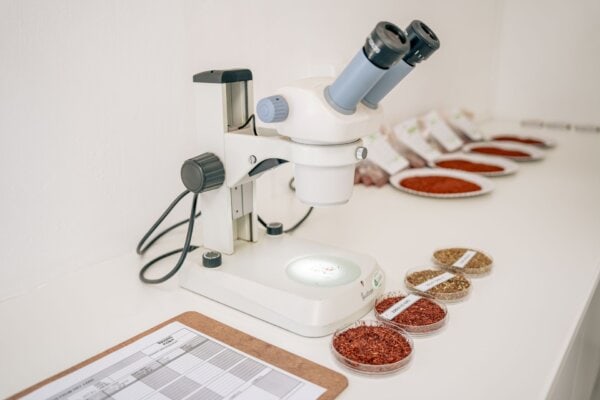
11. Export Analysis
PPECB collects a finished batch sample and conducts an independent analysis. After the batch passes all checks, a Certificate of Analysis is issued, combining all results, and PPECB provides an Export Licence for export.
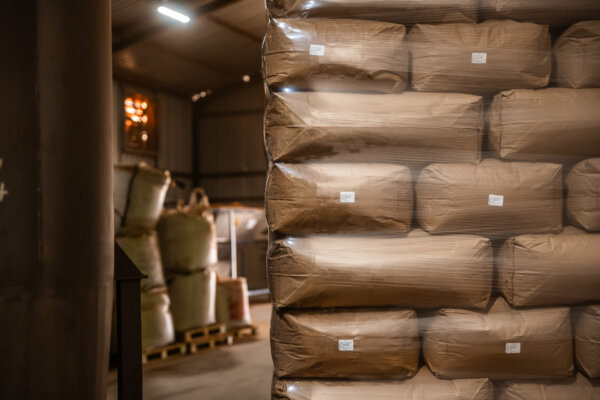
12. Packing and Shipping
We then pack your rooibos and ship it to your desired location worldwide. Processed rooibos can be packed in various formats, such as 18kg kraft paper bags or custom retail packs.
What We Offer
Bulk
Rooibos Tea
For importers, tea packers, and wellness brands looking for high-quality, traceable rooibos and herbal infusions, delivered in bulk directly from our farms with care.
Private
Label
For brands, retailers or wellness companies seeking custom rooibos blends and eco-conscious packaging, fully supported from concept to market launch.
Branded
Products
For retailers, wholesalers, and distributors looking for retail-ready rooibos teas, tea blends, and tea accessories with established brand appeal.




